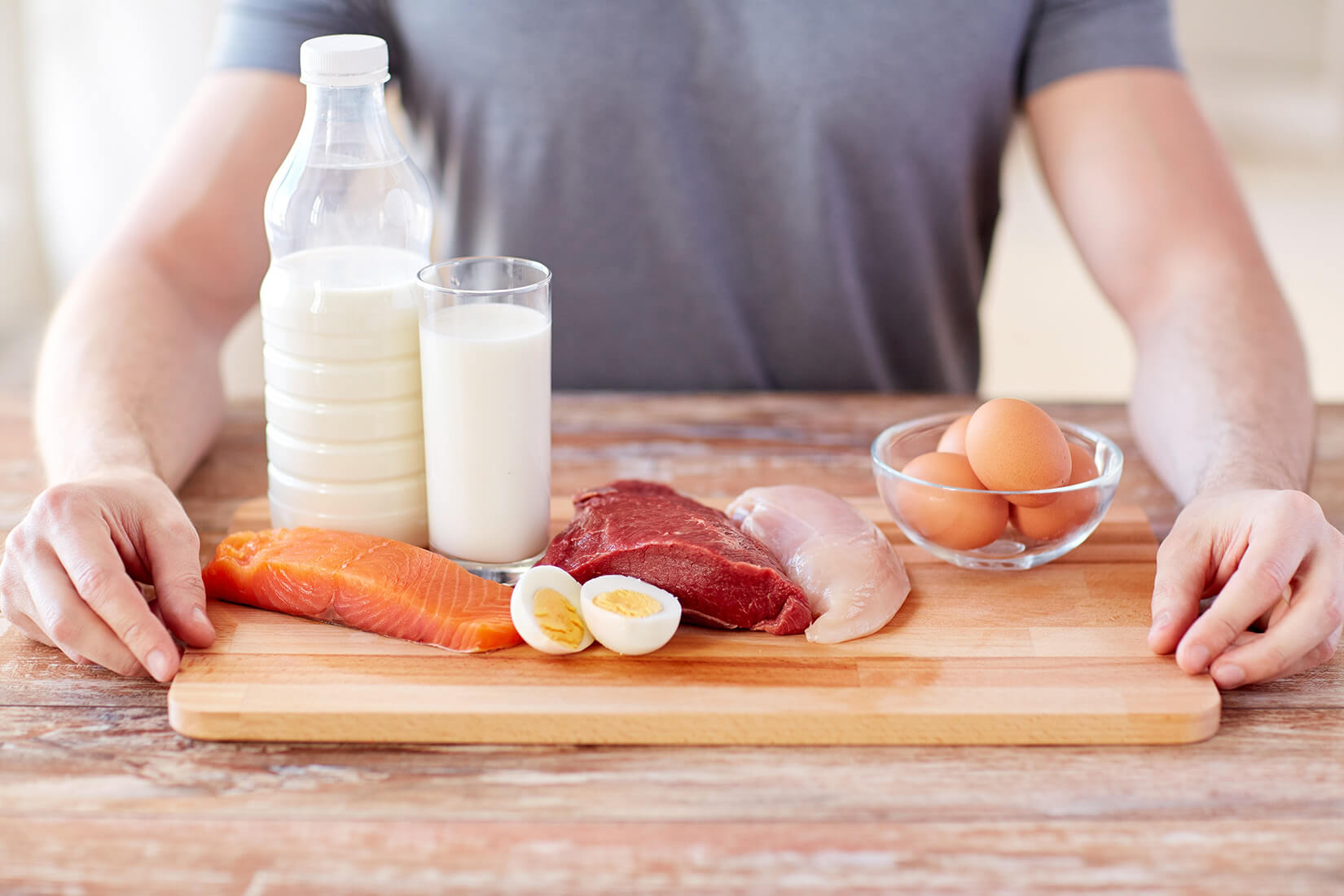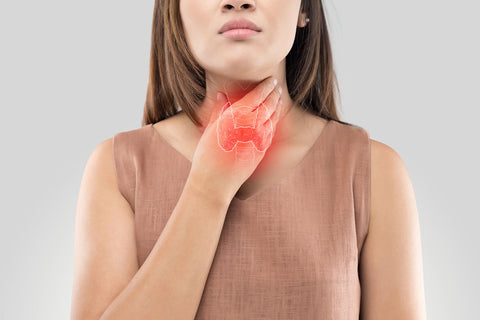It’s an important question: how much protein do you need to consume as you age? As we get older, it’s more important than ever to take care of your body and get adequate nutrition. However, this can be challenging because our nutritional needs change over time as we age. For example, while you may need fewer calories when you’re older, you might actually need to consume more protein in your diet. That’s why it’s critical to understand how much of certain vitamins, minerals, and nutrients you need to continue living a healthy, active lifestyle.
Incorporating a health supplement into your daily diet can be an effective and simple way to address any gaps in your diet. But even if you are taking a health supplement or drinking a protein shake in the morning, you should still know the specifics of what your body needs based on a variety of factors, including your age, fitness level, activity level, and more. In this blog, we’re discussing the importance of a protein-rich diet and help you assess how much protein you need to consume as you age to maintain good overall health.
PhytAge Labs is proud to be a leader in today’s health supplement industry. We’ve developed multiple groundbreaking health supplements so our customers can address health problems and maintain good health. We offer specialized organic health supplements for individuals experiencing a variety of health issues, including trouble sleeping, tinnitus, high blood pressure, prostate health problems, nerve damage, and much more. If you’re looking for an all-natural way to maintain quality health, PhytAge Labs is here to help.
Why is Protein So Important?
When it comes to protein, we may often think about bodybuilders or athletes bulking up for a competition. But in reality, we all need sufficient protein so that our bodies can grow, function, and stay healthy and active.
A protein-rich diet is important for everyone and every body. Some of the most prominent reasons why protein is so important include:
- Serves as an important building block for bones, muscles, cartilage, and skin.
- Repairs your body following injuries or illnesses.
- Creates enzymes that help with food digestion and making new cells.
- Helps to carry oxygen throughout the body with your red blood cells.
- Plays an important role in hormone regulation.
How Much Protein Do You Need to Consume as You Age?
Due to a variety of factors, most older individuals require even more protein than they did in their younger years. As you age, your body needs more protein to maintain muscle mass, which naturally reduces over time. Additionally, your body may not be able to retain nutrients as efficiently, which also calls for more protein in your diet.
So, how much protein should I be consuming as I get older?
Chances are, you’ll hear a lot of different answers to this question. But according to the most commonly cited standard, the Recommended Dietary Allowance (RDA), most older individuals should get about 0.8 grams of protein per 2.2 pounds of body weight per day. This means that, for example, a 150-pound woman should consume roughly 55 grams of protein each day to give the body the fuel it needs.
Of course, your personal dietary needs may vary due to your fitness level, any existing health problems, and your lifestyle goals. Speak with your doctor to gain a more complete understanding of how much protein (and other nutrients) you need to maintain the lifestyle you enjoy.
Good Sources of Protein for Your Diet
As one of the most important macronutrients for your body and overall wellness, everyone should strive to ensure that they’re getting enough protein in their diet. Luckily, there are many different sources of high-quality protein. Meat, eggs, dairy products, nuts, and whole grains are all easy (and delicious) ways to get the protein that your body needs.
Some of the most common sources of high-quality protein include:
- Meats: chicken, turkey, beef, or pork are all great sources of protein. However, you should aim for more lean meats, like chicken or turkey, and less red meats like beef or pork.
- Seafood: enjoy a trip to the ocean for your new protein fix. Crab, lobster, and salmon all have over 20 grams of protein per a 100 gram serving. Sardines, prawns, cod, and pollack are also great sources of protein.
- Eggs: get some protein in your morning with some eggs in your breakfast. Each egg has 6 grams of protein and are delicious whether fried, poached, scrambled, or used for a healthy morning omelette.
- Tofu: an ideal protein choice for vegetarians, vegans, or anyone trying to cut down on meat consumption, tofu is a great protein option. One serving of tofu, roughly half of a cup, equals 10 grams of protein.
- Nuts and seeds: for another meat-free option, you can also get protein from a variety of nuts and seeds. An all-around healthy snack, walnuts, peanuts, cashews, or pumpkin seeds are all great sources of protein.
- Legumes: beans, peas, and lentils can also be a significant (and healthy) source of protein for your diet.
- Grains: aim for whole grains, like whole wheat or brown rice, to get additional protein from your grains.
Protein Supplements & Organic Health Supplements
If you’re having trouble getting enough protein from your daily diet, there are other ways to supplement your protein intake. Many individuals will incorporate protein shakes or protein bars into their diet to add that extra amount of protein. Protein supplements can also be better for your overall health. Compared to other protein sources, like red meats, protein shakes and bars have far less cholesterol or fats.
While protein is essential for good health, it isn’t the only nutrient your body needs. For optimal wellness as you age, you also need to consume a sufficient amount of carbohydrates, fats (yes, there are good fats), vitamins, minerals, and of course, water. Together, all of these nutrients provide your body with the fuel to operate, grow, recover from injuries or illnesses, and to help you maintain an active lifestyle.
If you believe there are other gaps in your diet, an organic health supplement could address these gaps and help you get the nutrients you need. Packed with vital nutrients and minerals, these health supplements are a natural way to fuel your body without worrying about potential side effects that you might find from prescription medications.
Additionally, many of these all-natural health supplements are designed to address specific health problems. For example, if you’re experiencing high blood pressure, PhytAge Labs makes an organic health supplement (Blood Pressure 911) designed specifically to address this health issue. Developed with specific vitamins and nutrients, including Niacin, Vitamin C, and Vitamin B6, this organic health supplement provides your body with what it needs to naturally lower your blood pressure levels and promote better heart health.
Conclusion – How Much Protein Do You Need to Consume as You Age?
As you get older, it becomes even more important to ensure that your body is getting the fuel that it needs to stay active, recover from an injury or illness, and allow you to get up in the morning and enjoy each day. Protein is especially important as it plays a role in almost all of your bodily functions, including growth, repair from injuries, oxygenation, hormone regulation, and even the creation of new cells. Make sure you’re getting enough protein in your diet (or with protein supplements) to ensure good health for years to come.
Here at PhytAge Labs, we’re proud to develop a full line of organic health supplements to boost your health. With a selection of high-quality health supplements, including Prostate 911, Blood Pressure 911, Tinnitus 911, Nerve Control 911, and more, odds are we have an organic health supplement for you.
Whether you’re looking to address an existing health problem or simply hoping to maintain a higher level of health in your golden years, PhytAge Laboratories has the supplements you need to optimize your health and wellness.
Contact us today to learn more about our entire selection of all-natural health supplements. Together, we can begin your journey toward better health.
 Cart
Cart


















































 12600 Hill Country Boulevard Suite R-275, Bee Cave TX 78738
12600 Hill Country Boulevard Suite R-275, Bee Cave TX 78738 1-800-822-5753
1-800-822-5753
